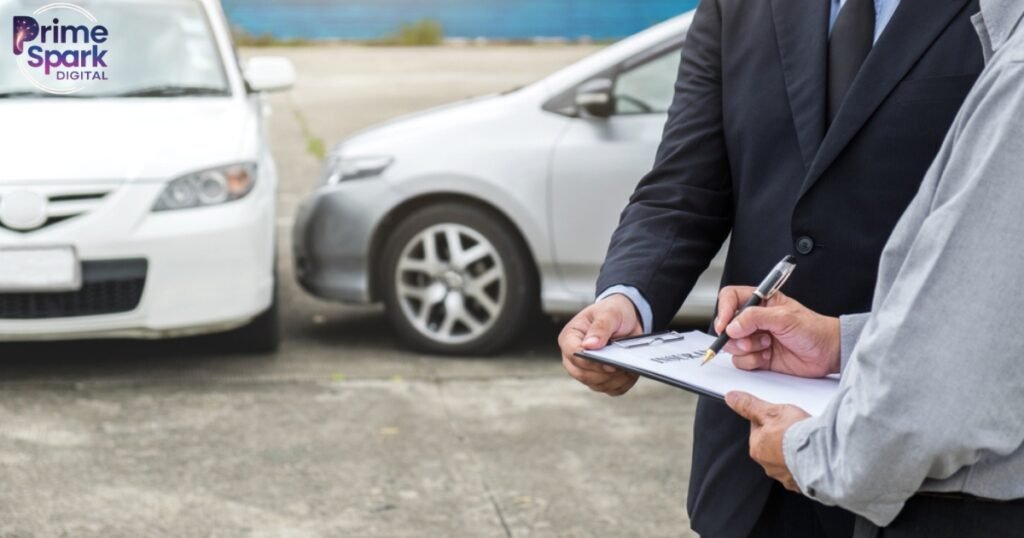Drive-away insurance is a short-term auto insurance that helps you legally drive your new or used car home after buying it. Many people ask, “Do I need insurance to drive a new car home?” The answer is yes. This type of insurance protects both you and others on the road before your permanent policy starts.
Whether you’re purchasing from a dealership, an auction, or a private seller, having coverage is essential. Without proof of car insurance, you might face penalties, fines, or worse—a car impound. This type of policy is ideal for car insurance compliance during ownership transfers.
What Is Drive-Away Insurance?
Buying a car is exciting, but it also comes with responsibility—especially when it comes to insurance. Drive-Away Insurance is a smart solution that gives you immediate protection when you buy a vehicle. It’s a short-term auto insurance policy that covers you while you’re getting your full coverage set up. Whether you’re purchasing from a dealership, private seller, or at an auction, Drive-Away Insurance helps you stay legal and safe on the road. It’s especially helpful if you’re handling an out-of-state car insurance situation or need auto insurance before registration. With temporary car insurance, you avoid stress and drive with peace of mind from the moment you leave the lot.
What Does Drive-Away Insurance Cover?
What does drive-away insurance cover? It depends on the provider, but typically it includes liability insurance for cars, collision and comprehensive coverage, and uninsured motorist protection. This means you are covered if you hit another vehicle, suffer storm damage, or get hit by someone with no insurance.
Coverage also applies to theft, vandalism, and other unexpected incidents. In some cases, policies might include roadside assistance or towing. Coverage is limited, but it serves the purpose until long-term insurance is arranged.
| Coverage Type | What It Covers |
| Liability | Damages to other vehicles or property |
| Collision | Damage to your car in an accident |
| Comprehensive | Theft, fire, vandalism, natural disasters |
| Uninsured Motorist | Accidents involving uninsured drivers |
Why You Need Drive-Away Insurance When Buying a New Car

Without temporary car insurance, you risk breaking the law. It doesn’t matter if the car is new or used, or who sold it. Many buyers assume they have a grace period, but that’s rarely true. Ask yourself, “Can I drive a car home without insurance?” The answer is no.
Imagine buying a car at an auction or from Craigslist. You might be excited, but unless you have insurance for car auctions or private seller car purchase insurance, you could be in trouble. States have different rules, but all require legal car insurance requirements before driving.
Can You Drive a Car Home Right After Buying It?
Can I drive a car home without insurance? This is a common question. The answer is no in most states. Some dealerships may let you leave the lot without insurance, but the moment you hit the road, you’re responsible.
You must have at least liability insurance for cars before driving. Even in states with grace periods, those only apply if you’re adding a new car to an existing policy. If this is your first car, you must show auto insurance before registration.
How Long Does Drive-Away Insurance Last?

How long does temporary insurance last? Most short-term auto insurance policies last from 1 to 30 days. The duration depends on the insurer and your needs. For example, if you’re buying a car out of state and need time to drive it home, a 7-day policy might be enough.
Some companies offer coverage by the hour or day. Make sure the vehicle coverage period fits your schedule. You don’t want to risk having your coverage end mid-trip. Timing is everything with coverage during car transfer.
How Much Does Drive-Away Insurance Cost?
How much does drive-away insurance cost? Prices vary. On average, it can range from $20 to $80. The cost depends on your driving history, the car’s value, and where you buy the insurance. States with strict laws, like Texas car insurance laws, may charge more.
The table below gives a rough idea:
| Policy Duration | Average Cost |
| 1 Day | $20 – $30 |
| 7 Days | $40 – $60 |
| 30 Days | $60 – $80 |
Make sure you compare rates. Buying cheap might save money now but leave you underinsured later. Always read the fine print before buying.
How to Get Drive-Away Insurance Quickly and Legally
Where to get drive-away insurance? You can find providers online or through traditional insurance companies. The process is fast. All you need is your driver’s license, car details, and payment method. Most online insurers offer coverage within minutes.
You may be wondering, “Can I get drive-away insurance online?” Yes, absolutely. In fact, that’s the easiest and fastest way. Just make sure the company is licensed in your state and offers legal coverage.
Benefits of Drive-Away Insurance
Benefits of drive-away insurance are plenty. It gives peace of mind, protects your investment, and keeps you legal. If you’re buying from an auction or transporting a vehicle across states, it is your best friend.
You’re also protected against surprise costs like towing or fines. With transport vehicle insurance, you avoid major headaches. It’s a smart choice, especially when things can go wrong quickly.
What Is a Drive-Away Driver or Contractor?
A drive-away driver policy is for people who transport cars for work. These contractors drive vehicles from factories, ports, or auctions to dealerships. They often work long distances and deal with high-value vehicles.
What is a drive-away insurance? for these drivers? It covers the time they are behind the wheel. It’s also called transport vehicle insurance and is required by most employers or contractors.
What Does Drive-Away Contractor Insurance Cover?

For contractors, this insurance includes liability insurance for cars, collision and comprehensive coverage, and more. It can also include cargo damage and rental reimbursement. It’s essential because they handle other people’s vehicles.
Policies must meet strict standards and sometimes include out-of-state car insurance if routes cross state lines. If you’re a professional driver, make sure your policy is commercial-grade.
Conclusion
So, is drive-away insurance worth it? Absolutely. It’s affordable, easy to get, and protects you when you’re most vulnerable—right after you buy a car. Whether you’re buying from a private seller, dealership, or auction, temporary car insurance is a must.
Don’t leave the lot without it. Knowing how does drive-away insurance work gives you the power to make smart decisions. Now you can hit the road with confidence and peace of mind.
FAQs
What is drive away coverage?
Drive away coverage is temporary car insurance that protects a vehicle during the short period after purchase, until permanent insurance begins. It ensures legal and safe driving immediately after buying a car.
Are driveways covered by home insurance?
Yes, most home insurance policies cover driveways against damage or liability, but coverage can vary, so checking your specific policy details is important.
How does driveaway work?
Driveaway insurance provides instant, short-term coverage for a newly bought car, allowing you to legally drive it home before getting a full policy.
How do I insure a rarely driven car?
You can get specialized policies like low-mileage or storage insurance, which offer coverage tailored for cars driven infrequently.
Do I need to insure a car that isn’t being driven?
If a car isn’t driven or parked on public roads, you might not need full coverage, but some states require minimum liability or comprehensive insurance even if it’s unused.
How much is pay by mile insurance?
Pay-by-mile insurance costs vary but typically charge a base rate plus a small fee per mile driven, making it affordable for low-mileage drivers.

I’m Talal Khan founder of Prime Spark Digital, a passionate blogger, digital enthusiast, and an SEO specialist. With a keen eye for digital trends and a dedication to delivering value-packed content. I helps readers stay informed and inspired in the ever-evolving world of online media. Thanks for stopping by




